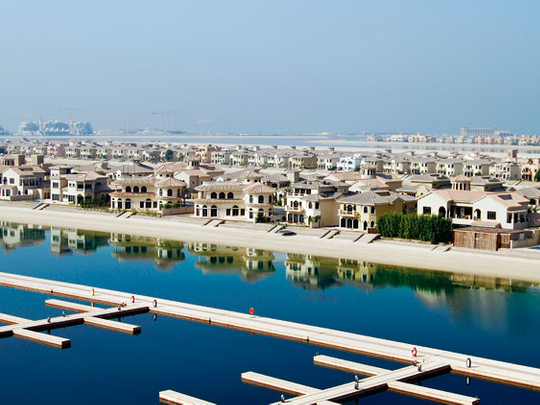
Why would you own your Dubai property through a company, and not simply in your individual name? There are no inheritance tax concerns, so what should you be worried about? Here are some frequently asked questions, which will help to clear the major doubts concerning this topic.
I am considering buying a property in Dubai, and I do not know the area at all. Is it a complicated and lengthy process?
There is so much property available now in Dubai that the process has become quite regulated and relatively straightforward. As long as you deal with well-known and reputable intermediaries, then your only problem should be the choice of the right property.
Do I have to be a UAE resident to buy property in Dubai?
No, you can be a non-resident and still own property here. Most developers will accept funds from non-resident persons or offshore entities to purchase property. The local law has been changed to allow foreign ownership in many areas around Dubai, although certain areas are still reserved for local Emirati buyers only.
You mention ‘offshore entities' — what is the main benefit of owning property through an offshore company. Is it not better to have the house or apartment in my own name?
Laws in Dubai are not the same as in the UK or European Union, in particular with regard to inheritance laws. When a foreigner who owns a property in Dubai passes away, the laws of the owner's home country should apply. There have been cases, however, where Sharia has been considered. Under Sharia, upon death of a homeowner, the property is generally transferred to the eldest male sibling. If you do not have a male sibling then it [the property] forms part of the state, and it is then up to an executor to go to court and get a ruling on whether or not this is correct.
A property owned by an offshore company would not be subject to Sharia in relation to the distribution of assets, as long as the shares of the company are held outside of the UAE. This is because a company never ‘dies'. Shares can be distributed in accordance with the usual rules concerning succession in the place of the deceased shareholder's domicile or will.
This is a very simple and cheap solution that will, if nothing else, provide reassurance to a family and can avoid lengthy local probate proceedings.
But what kind of "offshore companies" can I use? I have heard that it's no longer possible to use a BVI (British Virgin Islands) company?
Yes, this is correct. Since the 1st of January 2011, the only offshore company that can be used is the Jebel Ali Offshore Company. This is a company designed by Jafza (Jebel Ali Free Zone Authority) for international trade, but can be used in Dubai to hold property and bank accounts. It does not give you a local trade licence, nor will it give you residency or work permits.
The shares of this Jebel Ali offshore company can be held individually, but we recommend using a common law company (like a BVI, or Cayman, or Channel Islands), to act as shareholder. This will bring the ownership of your property to foreign courts, in the event of the death of the ultimate owner.
But to get a mortgage, if held through an offshore company, what choice of banks do I have?
You can apply for a mortgage from select banks if property is held in an offshore company. For individual purchases, a number of banks offer mortgages.
What are the other benefits?
A company provides a legal framework for joint investment. A group of investors can join together and hold shares within the offshore company, which reflect their proportion of property ownership, thus providing a legal structure for multiple ownership.
It also provides privacy and confidentiality and thereby protects your assets. The property is registered in the name of the company and not in the name of any individuals, therefore it is straightforward to keep the beneficial ownership of the property confidential.
If I already own a property, can I transfer the ownership to an offshore company?
Yes, you can transfer the ownership to an offshore company from your individual name. As long as you can clearly show the Land Department that the beneficial ownership is not changing (and no persons are being added, or removed), then there will only be a minimum fee to change the title deeds.
Can I own other assets through the company?
Yes you can. A company is a legal entity and can own any asset, be it a bank account, stocks or shares, and of course other properties, here in the UAE, or internationally.
How can I sell the property if held in an offshore company?
You can simply sell the property from the company, and sign the transfer documents as a shareholder of the company, or assuming the company only holds this one property, you can transfer the shares of the company to the new owner. Either way, these changes will need to be registered at the Land Department and a 2 per cent transfer fee will apply.
Do developers and brokers in the UAE recognise offshore companies?
Yes, now that there is only one that can be used — Jafza Offshore — developers, brokers and bankers understand the process clearly. However, it is advisable to first check with your agent that they would be happy to accept property purchase through a corporate structure. Not all small brokers may have used these systems previously.
How do I set-up an offshore company? What are the costs involved for set-up and on-going?
An offshore company can be set up in 24 hours, and costs $4,000 (Dh14,688) in the region. The Sovereign Group has offices in 27 jurisdictions and can assist with the set-up of companies and trusts all over the world.
Please contact our office on 04 448 6010, if you would like additional information on the process of incorporating an offshore company, as well as full details on the associated costs. Should anonymity be required, professional directors and shareholders for a company can also be provided.
While every effort has been made to ensure that the details contained herein are correct and up-to-date, this information does not constitute legal or other professional advice. We do not accept any responsibility, legal or otherwise, for any error or omission.
Questions answered by John D. Hanafin, Managing Director, Sovereign Group












